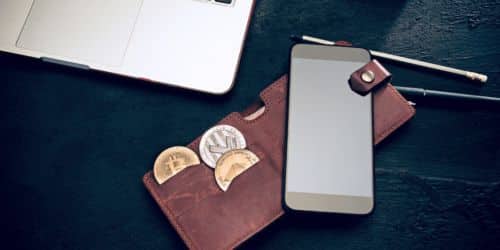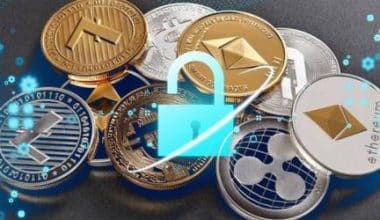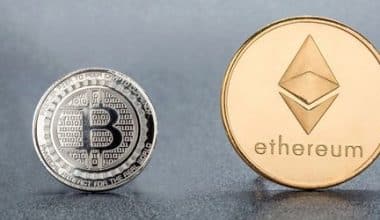Opening a Bitcoin (BTC) account is as simple as installing an app on your mobile device or PC. Your Bitcoin wallet will be created immediately once you install the program. However, you must first settle on a bitcoin wallet. This article provides a step-by-step guide on how you can open a Bitcoin account in Nigeria. But first, it’s important to understand what having a Bitcoin account entails.
What is a Bitcoin Account?
Although newcomers to cryptocurrency frequently use the term, there is no such thing as a “Bitcoin account.” On the contrary, Bitcoin is a decentralized digital currency, which means you will not have an account with a third-party institution. Instead, you can invest in Bitcoin by purchasing it via a cryptocurrency exchange like eToro and then withdrawing your coins to a private wallet. As opposed to entrusting an intermediary, this allows you to keep full ownership of your Bitcoin.
It is also worth noting that you can open a Bitcoin account with a CFD broker. For those who are unfamiliar, a CFD allows you to speculate on the future price of an item without really holding it.
With Bitcoin being a multibillion-dollar asset, you can now invest in it using a CFD. You’ll be utilizing a heavily regulated broker, so there’s no need to worry about your Bitcoin being stolen from your private wallet.
How To Open A Bitcoin Account In Nigeria
Whether you are a business owner or a person, here’s how you can open a Bitcoin account:
#1. Get a Bitcoin wallet.
First, get a Bitcoin wallet to store your Bitcoins and conduct transactions. There are various sorts of wallets available, but the most common are desktop and mobile wallets. Desktop wallets are downloaded to your PC, whilst mobile wallets are installed on your smartphone or tablet.
#2. Create a Bitcoin Address
The next step is to create a Bitcoin address. This is a unique identifier that is used to accept payments. You can make as many addresses as you wish and share them with others. Keep your Bitcoin address secure and private. To increase security, utilize two-factor authentication.
#3. Private key
The next thing you’ll need is a private key. This will allow you to access your coins and make payments. Every Bitcoin address that uses it has its own private key. However, discovering the private key on your own is difficult, which is why you need a wallet that can keep it safe for you. Remember not to reveal your secret keys.
#4. Fund your Bitcoin Wallet
The final step is to create the fund in your Bitcoin wallet. This is where you will save your bitcoins and perform everyday transactions. You can choose to fund your wallet with one or more of the following methods:
- Bank account (for significant transactions)
- Credit card
- Debit card
- Wire transfer.
Another alternative is to mine bitcoins. This is the technique by which new Bitcoins are created by solving complex mathematical problems.
#5. Begin giving and receiving money
You are now ready to send and receive money after completing the preceding procedures. All you have to do is access your Bitcoin wallet and pick the address to which you want to send or receive money. You will also be issued a unique QR code that may be used to conduct transactions. So, whether you’re buying goods or services online or transferring money to friends and family, Bitcoin is a quick and efficient way to do so.
#6. Begin purchasing Bitcoin
You can now purchase Bitcoins and transfer them to a wallet of your choice. The first step is to locate a Bitcoin exchange. There are numerous exchanges available. Some are online, while others are offline, via applications or websites. Choosing an appropriate exchange, such as https://www.okx.com/markets/prices, is critical to your success in purchasing Bitcoins in Nigeria.
#7. Offer Bitcoins for sale
The final step is to exchange Bitcoins for fiat currency. The exchange you choose will usually allow you to sell your Bitcoins for fiat currency. Once the transaction is completed, you can use the funds to purchase further items or services. Good luck!
How Does a Bitcoin Wallet Work?
A Bitcoin wallet, like a real wallet, is where you keep your cash and credit cards. However, unlike a physical wallet, a Bitcoin wallet is totally digital and acts similarly to an email account. You must log onto your account using your private key, access your cryptocurrencies, and transmit amounts to the intended people.
There are two types of Bitcoin wallets:
Hot wallet: Hot wallets keep Bitcoin private keys on internet-connected devices. While they are simple and comfortable to use, they can represent a huge security risk to Bitcoin holders who lose their primary device. If you open a Bitcoin account, only use a hot wallet to store small amounts of cryptocurrency.
Cold wallets: keep Bitcoin private keys offline. They are extremely secure and remove any possibility of hacking.
Types Of Bitcoin Wallets
There are various bitcoin wallets to select from, just as there are many physical wallets. Each has pros and cons, which we will discuss further below.
#1. Mobile wallet
A mobile wallet is ideal for face-to-face transactions and in-store buying. Most mobile wallets use near-field communication (NFC), which allows users to initiate a transaction by tapping their phone on a terminal.
Pros
- Highly portable and convenient
- Setup is quite simple.
- Added security with two-factor authentication
Cons
- The least secure digital wallet since it is vulnerable to hacking
- There is no command over nodes or transactions.
EU-licensed CryptoWallet is an example of a mobile wallet that includes an exchange service. Within the program, you can establish several wallets for bitcoin, ether, and other cryptocurrencies. Furthermore, like many mobile wallets, it allows clients to pay online and spend cryptocurrency like actual money. CryptoWallet also has an affiliate program. When your associate registers in CryptoWallet using your rewards code, you will receive a percentage of any transaction fees incurred.
Trust Wallet is another popular mobile wallet that is linked with the main cryptocurrency exchange, Coinbase. It, like CryptoWallet, allows users to store several cryptocurrencies and even NFT collectibles in one spot. The wallet is integrated with BinancePay, which allows you to utilize cryptocurrencies in the real world, such as by paying in stores.
Mobile wallets are attempting to keep up with security measures and legislation. For example, CryptoWallet recently extended its trading license in Estonia, despite stricter EU crypto legislation. However, keep in mind all of the disadvantages listed above and avoid holding large sums of cryptocurrency in hot wallets.
#2. Software Wallet
Software wallets are mobile or desktop applications that link to the internet to conduct transactions. Most software wallets are fully self-custodial, which means that wallet providers cannot access your Bitcoin – only you can.
Pros
- There is no charge to download or register.
- Simple to use
- When compared to mobile wallets, the danger of hacking is lower.
MetaMask is one of the most popular software wallets available, including both a browser extension and an app. As a software wallet, it allows users to easily store, send, and receive Ethereum and Ethereum-based tokens like ERC-20 and ERC-721.
One of the benefits of MetaMask is its integration with dapps. The wallet works easily with a plethora of dapps, allowing users to access a variety of decentralized services such as decentralized exchanges, lending sites, and gaming applications.
Furthermore, users may easily add custom tokens to their wallets, allowing them to manage a wide range of assets. However, MetaMask only supports Ethereum-based tokens, rendering it inappropriate for those looking for a multi-chain wallet solution.
It is also vital to consider the drawbacks of using software wallets. For some crypto aficionados, MetaMask transactions are publicly available on the blockchain, which could reveal users’ wallet addresses and associated transaction histories. Furthermore, while MetaMask has reasonable security features, it does not provide the same level of protection as hardware wallets, which are regarded as the most safe option to hold crypto assets.
#3. Hardware wallet
Hardware wallets are cold wallets that can be used to conduct offline transactions. There are various types of hardware wallets on the market. The most popular are the Ledger Nano S and Trezor Model T. These wallets support a wide range of cryptocurrencies and provide built-in displays that make it simple to confirm transactions before signing them.
Pros
- Keys are more secure since they are never connected to the internet.
- Simple to backup and restore
Cons
- They are not appropriate for regular bitcoin transactions since they can be difficult to access.
- Some hardware wallet vendors are untrustworthy/unsecure.
#4. Centralized exchange wallet
Centralized exchanges (CEXs) are similar to trading accounts in that third parties control accounts, exchanges, wallets, and transactions.
Pros
- Simple to install and use
- Compatible with desktops and mobile devices
Cons
- Not secure unless you trade bitcoin instantly.
- Permission is required for withdrawal.
- Longer withdrawal periods
- High transaction fees
Binance’s P2P service is an example of a centralized exchange wallet, where traders’ funds can be traded online in seconds. Binance P2P crypto assets are not stored on the platform. When a deal is completed, the acquired cryptocurrency is transferred to the user’s Binance wallet.
#5. Paper Wallet
To utilize paper wallets, you must first download a software application that generates key pairs. Then, you’ll print these key pairs on paper, allowing you to access and store Bitcoin offline.
Pros
- A low-cost alternative to hardware wallets
- Ideal for face-to-face dealings
Cons
- Paper keys are easy to misplace.
- It is necessary to have physical access to the printed keys.
How Much Money Do I Need To Open A Bitcoin Account?
Some coins are worth hundreds of dollars, but exchanges frequently allow you to acquire fractions of a single coin—your initial investment might be as little as $25.
How Do I Open A Bitcoin Account On My Phone?
- Go to the App Store (iOS) or Google Play Store (Android).
- Search and download Coinomi.
- Open the app and write down your 24-word recovery phrase.
- Set a strong password.
- Add bitcoin to your wallet.
- Use your receiving address to receive Bitcoin.
Which Bank in Nigeria Accepts Bitcoin?
Citizens and visitors to Nigeria can purchase Bitcoin (BTC) using any Nigerian bank card. Zenith Bank is one of Nigeria’s largest banks, followed by First Bank of Nigeria, Access Bank, United Bank for Africa, and Guaranty Trust Bank.
Do I Need A Bank Account For Bitcoin?
Bitcoin payment methods include bank accounts, debit cards, and credit cards. Bitcoin can also be obtained using specialist ATMs and peer-to-peer (P2P) exchanges.
Is There a Bitcoin ATM in Nigeria?
Nigeria has two Bitcoin ATMs. And two of them are in Lagos, Nigeria. One is in Dazey Lounge and Bar in Ajah, and the other is at CI Crypto Solutions in Ikeja.
Does Kuda Accept Bitcoin?
Kuda Bank has threatened to cancel accounts deemed to be involved in Bitcoin transactions. The bank stated that it cannot enable cryptocurrency transactions because it contradicts the regulation of the Central Bank of Nigeria, which governs all financial institutions in the country.
Can I Transfer Money From Bank Account To Bitcoin?
When compared to other payment options, bank account transfers are by far the cheapest choice for purchasing Bitcoin online. As we will see momentarily, the finest crypto exchanges charge no fees when depositing funds via a bank account. In contrast, debit/credit card and e-wallet payments can incur exorbitant costs.
Conclusion
While registering a Bitcoin account is pretty simple, the type of wallet you use will determine how secure your money is. Consider how you want to access your Bitcoin, what you want to spend it for, and what is most convenient for you.
- WHAT IS DIGITAL WALLET: Types, Apps, How To Create It & Credit Cards
- MOBILE WALLET: Best Mobile Wallets & How to Use It
- BITCOIN CASH: Definition and Investment
- METHODS FOR PURCHASING BITCOIN






